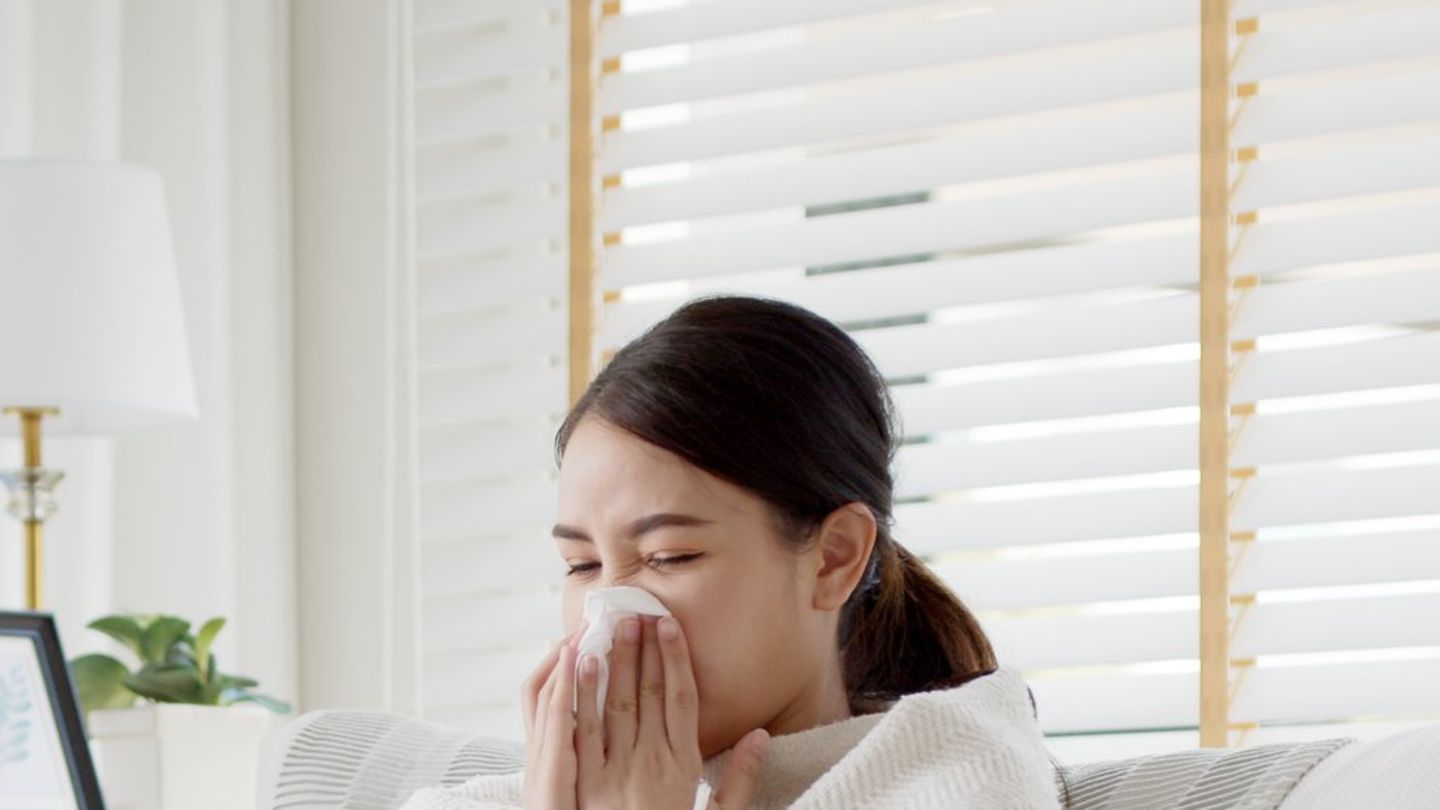The phenomenon of leisure sickness occurs when one actually wants to rest. That’s behind it.
Closing time, the holidays are approaching, but right now your throat is scratching and your nose is running. This is often no coincidence, but has a specific name: Leisure sickness is the name of the phenomenon that can quickly ruin a holiday. What exactly is it and what can be done about it.
Leisure sickness usually occurs when you least need it: when you just want to go into sleep mode and enjoy your vacation. However, people who suffer from leisure sickness then experience physical or psychological discomfort.
According to a survey, every fifth person in Germany suffers from it. That confirmed the Study by the International University of Bad Honnef-Bonn (IUBH) a few years ago – and thus as one of the few studies in this area also the frequency of this phenomenon.
That’s what lies behind Leisure Sickness
According to Prof. Claudia Möller, who was involved in the 2017 study, leisure sickness particularly affects people who tend to be available for work in their free time. However, those affected suffer from various side effects that depend on various factors: stress in everyday life, personality or health.
Typical symptoms of leisure-time illness are headaches that occur at the beginning of a weekend, and colds or flu-like symptoms are also common. However, the symptoms go further, for example, those who are ill feel flat and lack energy. Nausea and vomiting can also occur.
However, the precise background to this phenomenon has not yet been adequately clarified. Because even in research there is still no clear definition, but various explanations that could explain the phenomenon.
One of them says that the immune system runs at full speed during stressful phases, while the body shuts down important processes. As a result, the body is said to be particularly susceptible to an infection when it is at rest, since the immune system is already weakened.
Another approach assumes that the body suppresses existing symptoms when the stress level is high because the body is working in a particularly focused manner. As a result, you hardly notice that you are not doing so well or that your body actually needs relaxation, which has a negative effect on your physical condition.
signs of depression?
What is certain is that there is a connection between the stress experienced and the body’s reaction to it. The complaints of leisure sickness are often viewed by those affected as a harmless reaction of the body and are hardly noticed.
It becomes particularly worrying when you have a recurring recreational illness or persistent exhaustion. Then it can also be a sign of depression. In this case, you should definitely consult a doctor.
This helps against leisure sickness
It is all the more important to consciously slow down in order to avoid possible failures. Smaller measures such as regular exercise or daily walks can help to reduce stress and clear your head. In addition, however, sufficient sleep is also very important – both for physical and mental health.
The be-all and end-all in everyday working life is to take breaks. After work, it can also help to put the smartphone and other media aside or switch them off completely so that the body and mind can rest.
When planning a holiday, it is important to consider what is really important to you and what you need during this time. In this way, it can be avoided that the holiday is again overcrowded with too many appointments and sightseeing tours. It is also important not to set too high expectations for the holiday to avoid additional stress.
As many jobs as possible should be completed before the holiday. An ever-decreasing to-do list helps to reduce the stress level in advance. A handover to colleagues can also make it easier to switch off.
Ideally, you have already spent the first days off at home in order to get in the mood for your holiday in peace and quiet. If possible, additional rest days at home should be scheduled after the holiday. This could reduce the stress of the outward and return journey.
By the way: Inability to work and vacation are not mutually exclusive. If you fall ill while on vacation and become unable to work, these days do not count as vacation days according to Section 9 of the Federal Vacation Act (BUrlG). However, this only applies with a medical certificate.
